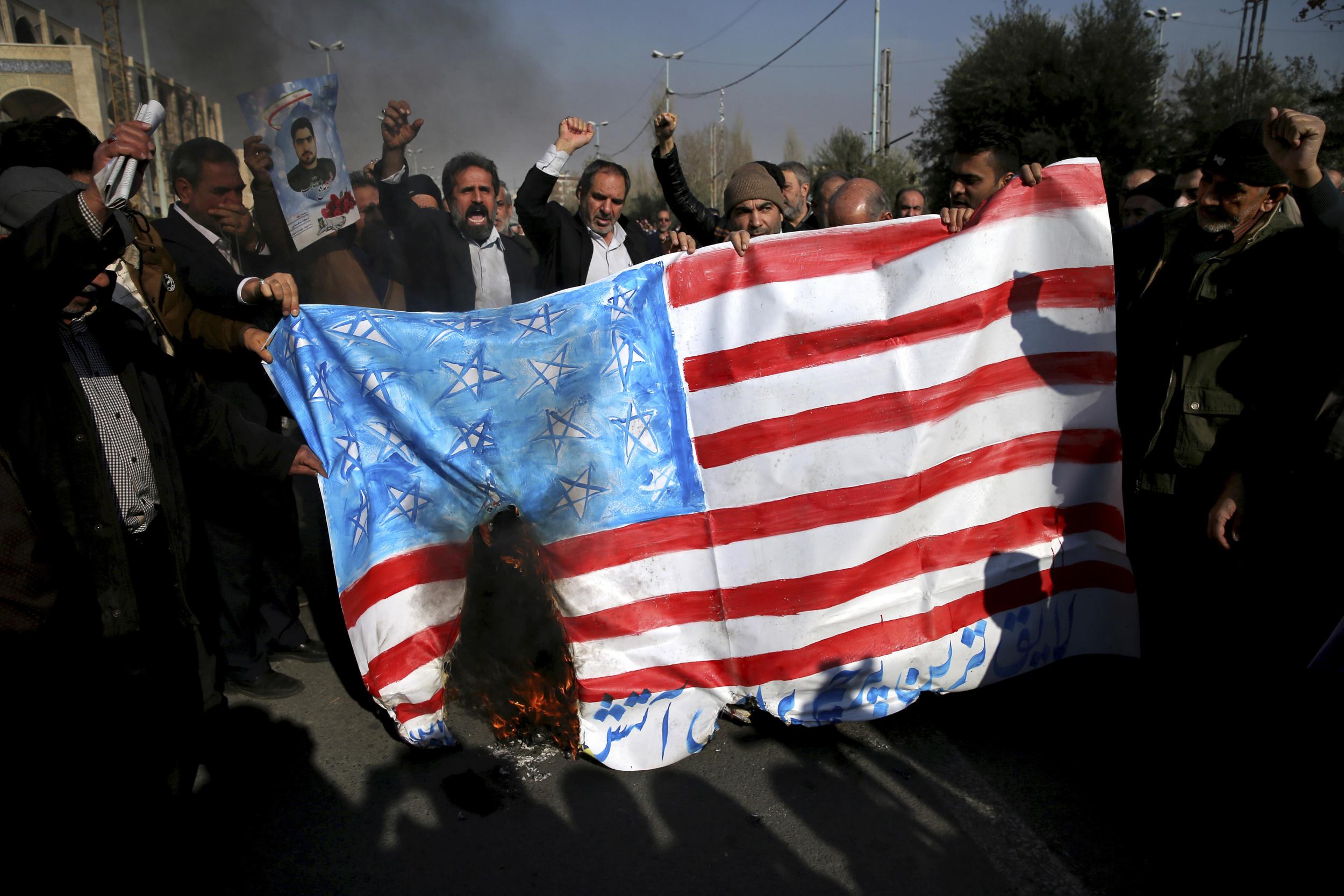Iran says it has ended anti-government protests and blames US, Israel and Saudi Arabia for unrest
More than 1,000 people arrested and at least 21 killed since security forces launched crackdown on demonstrations

Iran's Revolutionary Guard said security forces have ended the unrest linked to anti-government protests which erupted last month.
In a statement on its website, the powerful paramilitary force blamed the unrest on the United States, Israel and Saudi Arabia, as parliament and security officials met to discuss the boldest challenge to the clerical establishment since 2009.
The Guard also claimed an exiled opposition group known as the Mujahedeen-e-Khalq and supporters of the monarchy that was overthrown in the 1979 Islamic Revolution were behind the protests.
Price hikes sparked demonstrations last month, with the protests spreading to at least 80 cities and towns. At least 21 people were killed in scattered clashes.
The protestors, many of them young and working-class Iranians, vented anger at high unemployment and official corruption. The demonstrations were the largest seen in Iran since the disputed 2009 presidential elections.
Some protesters called for the overthrow of the government. Many also protested against the Revolutionary Guard's huge budget, its costly interventions across the region, and against the supreme leader, Ayatollah Ali Khamenei, to whom the force is loyal.
More than 1,000 people have been arrested since the protests began. They include around 90 university students, of whom 10 remained unaccounted for, reformist MP Mahmoud Sadeghi told the semi-official ISNA news agency.
Several parliament members and university officials have expressed concern over the fate of students arrested during the protests. Tehran University Vice-President Majid Sarsangi said the university had set up a committee to track them.
Relatives of detainees were reported to have gathered outside prisons seeking information about the fate of their loved ones.
A police spokesman said most of those arrested were "duped" into joining the unrest and had been freed on bail. He added: "But the leaders of the unrest are held by the judiciary in prison."
Residents of several cities confirmed to Reuters that protests had subsided after the government intensified a crackdown by dispatching forces to a number of provinces.
Videos on social media showed a heavy police presence in cities on Saturday night, including Khorramabad in south-western Iran where on Wednesday evening protesters threw stones at riot police.
Iran's parliament held a closed session on Sunday in which senior security officials briefed them on the protests and the conditions of the detainees, the agency reported.
"It was emphasised that foreign elements, and in particular the United States, played a basic role in forming and manipulating the recent unrest," IRNA quoted lawmaker Jalal Mirzaei as saying.
The United States and Israel expressed support for the protests, which began on 28 December in Iran's second largest city, Mashhad, but their governments both denied fomenting them.
As protests ebbed, the government lifted restrictions it imposed on Instagram, one of the social media tools used by protesters to mobilise. But access to a more widely used messaging app, Telegram, was still blocked, suggesting authorities remained uneasy about the possibility of further protests.
Parliament spokesman Behrouz Nemati said MPs and security officials had decided that Telegram restrictions should be lifted only after the app committed to ban "hostile, anti-Iranian channels that promote unrest", state television reported.
Late last month Telegram, which has 40 million users in Iran, shut down a channel that the government had claimed encouraged violence, but declined to block other channels, prompting Tehran to bar access to the app.
Many Iranians access Telegram by using virtual private networks (VPNs) and other tools to bypass government filtering of the Internet.
In recent days, government supporters have held several mass rallies across the country to oppose the unrest.
Thousands staged rallies in a backlash against the anti-government protests, with some demonstrators chanting "death to America", "death to Israel", "death to Britain" and "death to seditionists".
State television showed live pictures of rallies in several cities, including central Shahr-e Kord, where hundreds gathered despite heavy snowfall.
Join our commenting forum
Join thought-provoking conversations, follow other Independent readers and see their replies
Comments
Bookmark popover
Removed from bookmarks